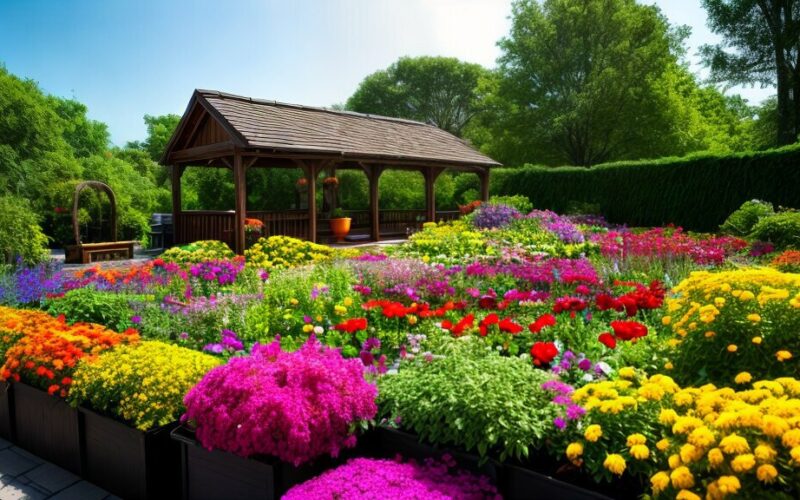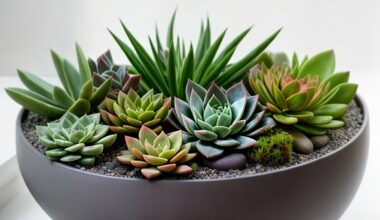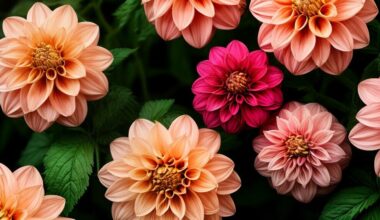If you’re looking for a natural way to boost your garden’s health and growth, spices might be the answer. Spices have been used for centuries for their medicinal and culinary properties, and it turns out they can be just as beneficial for your plants. In this section, we will explore the different spices that are good for plants and gardening, and how they can help enhance your garden naturally.
Adding natural spices to your garden is an easy way to promote plant growth, while also using a sustainable and safe method. There are a few key benefits to using spices in your garden. For one, they are readily available and affordable, making it easy to add them to your gardening routine. Additionally, spices are natural and safe, so you won’t have to worry about any harmful chemicals or pesticides.
Key Takeaways:
- Spices can be beneficial for plant growth and gardening
- They are natural and safe, making them a sustainable option
- Using spices in your garden can enhance plant health naturally
Enhancing Plant Growth with Spice Infused Soil
Spices are not only great for adding flavor to your food, but they can also enhance the growth of your plants. When added to soil, certain spices can improve soil quality and provide essential nutrients that promote healthy plant growth. Here are some of the best spices to use for enhancing plant growth:
| Spice | Benefits for Plants |
|---|---|
| Cinnamon | Antifungal properties, promotes root growth |
| Garlic | Repels pests, contains sulfur which aids plant growth |
| Ginger | Antimicrobial properties, improves soil fertility |
| Turmeric | Anti-inflammatory properties, improves soil structure |
To incorporate these spices into your gardening routine, you can mix them into your soil or create a spice-infused watering solution. For example, you can add a teaspoon of cinnamon to a gallon of water and use it to water your plants. Another option is to sprinkle a small amount of the spice directly onto the soil around your plants.
It’s important to note that while spices can be beneficial for plant growth, they should be used in moderation. Adding too much of a spice can actually harm your plants and lead to nutrient imbalances in the soil.
Using spices to enhance plant growth is a natural and effective way to promote healthy, thriving plants. Give it a try and see the difference it can make for your garden.
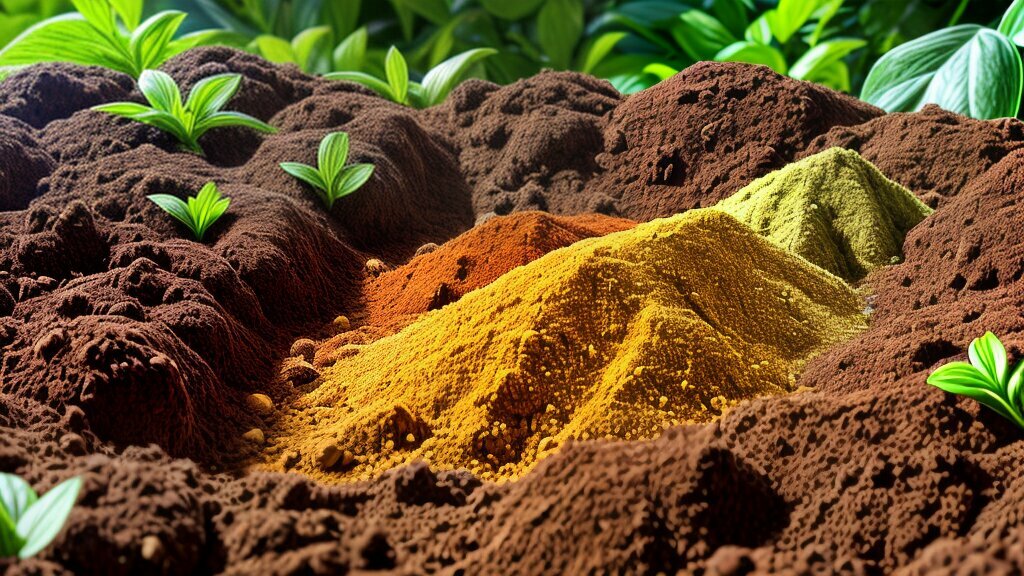
Keeping Pests at Bay with Spice Repellents
If you’re looking for natural ways to keep pests away from your plants, spices can be a great solution. Not only do they keep pests at bay, but they also add a wonderful fragrance to your garden. Here are some effective spice-based repellents to try:
| Spice | Pest Repelled |
|---|---|
| Cinnamon | Ants, spiders, and silverfish |
| Garlic | Japanese beetles, aphids, and spider mites |
| Cayenne pepper | Squirrels, raccoons, and other mammals |
To make a spice repellent, simply mix your chosen spice with water and spray it around your garden. You can also sprinkle the spice directly onto your plants. Be sure to reapply after rainfall and follow the recipe carefully to avoid damaging your plants.
Another way to repel pests with spices is to plant them alongside your crops. Herbs like peppermint, basil, and rosemary naturally repel insects, while certain flowers like marigolds and chrysanthemums can deter pests as well.
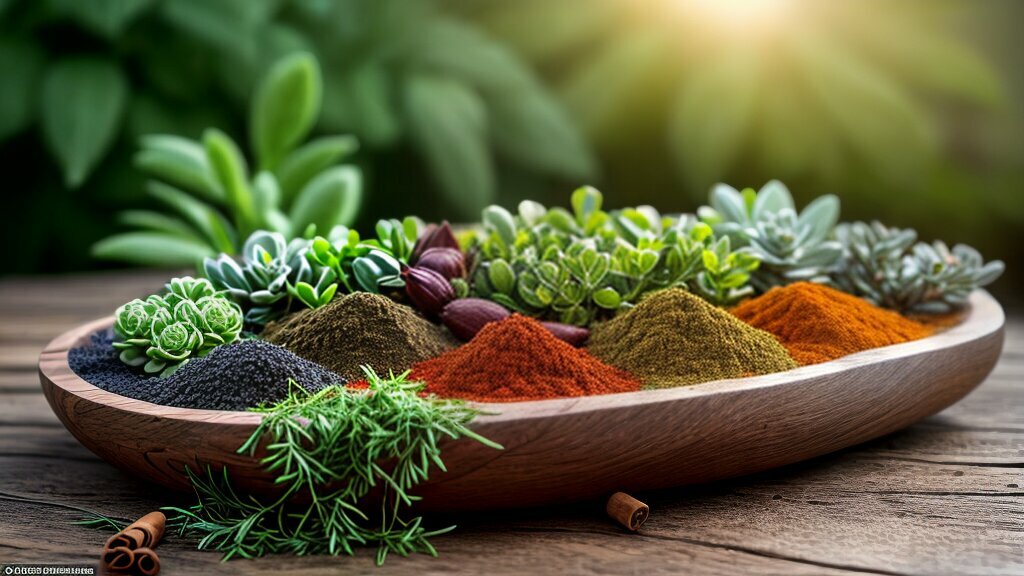
Spices like cinnamon and garlic can be used to naturally repel pests in your garden.
Spice Remedies for Common Plant Problems
If you’re a gardener, you know firsthand the frustrations that come along with plant problems. Fortunately, many spices can help you address these issues. Here are some spice remedies that can solve common plant problems:
Fungal Infections
If your plants have fungal infections, try using cinnamon. Its antifungal properties can help prevent the growth of harmful fungi. Simply sprinkle some cinnamon powder on the soil around your plants, or mix it with water to create a spray. Apply it to the leaves and stems of your plants to protect them from fungal infections.
Nutrient Deficiencies
If you notice that your plants are showing signs of nutrient deficiencies, such as yellowing leaves or stunted growth, consider using turmeric. Turmeric contains high levels of iron, which can help plants absorb nutrients more effectively. Mix a teaspoon of turmeric powder with water and apply it to the soil around your plants. You can also sprinkle some turmeric powder on the topsoil.
Pest Infestations
If your plants are being attacked by pests, such as aphids or spider mites, try using cloves. Cloves contain high levels of eugenol, which can repel these pests. Simply crush some cloves and sprinkle them around the base of your plants. Alternatively, you can steep them in water to create a spray. Apply the spray to the leaves and stems of your plants to keep pests at bay.
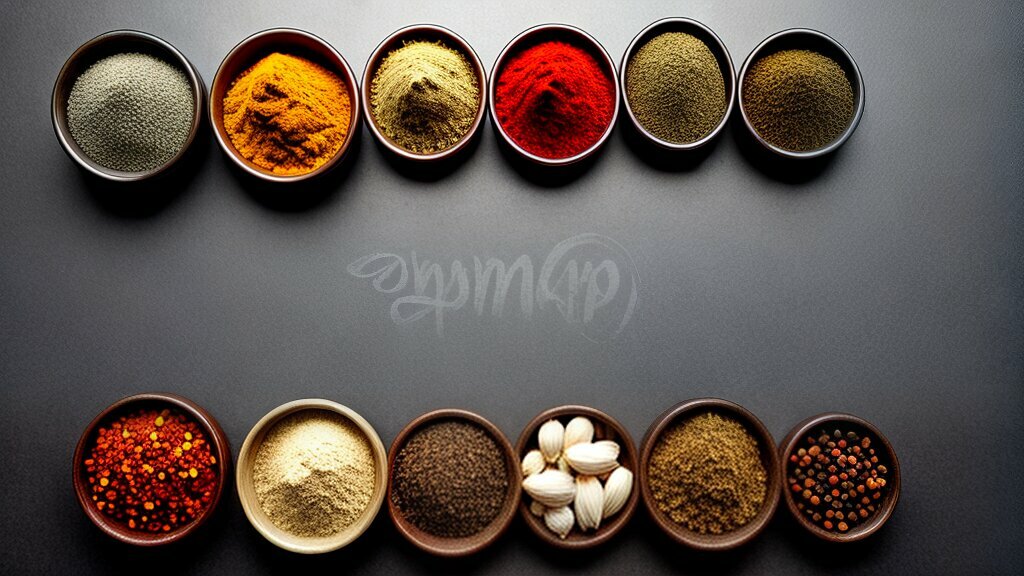
Using spices to address common plant problems is a natural and effective way to keep your garden healthy. Plus, it’s an eco-friendly alternative to harsh chemicals. Give these spice remedies a try and enjoy a thriving garden!
Caring for Plants with Herbs and Spices
Herbs and spices aren’t just great for cooking; they can also provide a range of benefits for your plants. Incorporating herbs and spices into your gardening routine can help promote healthy growth and deter pests. Here are some recommended herbs and spices for plant care:
| Herb/Spice | Benefit |
|---|---|
| Basil | Repels flies and mosquitoes, enhances flavor of tomatoes and peppers |
| Thyme | Repels cabbage worms and slugs, improves soil quality |
| Rosemary | Repels pests and attracts bees, improves air circulation |
| Lavender | Repels moths and fleas, attracts pollinators |
| Mint | Repels ants and mosquitoes, enhances flavor of fruits and vegetables |
Using herbs and spices in companion planting can also provide benefits for your plants. For example, pairing garlic with roses can help deter aphids and protect the roses from disease.
Herbs and spices can be used in a variety of ways in your gardening routine. You can plant them directly in the soil, use them in companion planting, or infuse them in water to create a natural fertilizer. Experiment with different herbs and spices to discover what works best for your garden.

Caring for Plants with Herbs and Spices
Using herbs and spices in your garden can provide many benefits to your plants. Not only do they add flavor and aroma to your garden, but they can also promote overall plant health and care. Here are some of the best herbs and spices you can use to care for your plants:
1. Cinnamon
Cinnamon is not just a tasty spice but also a natural fungicide. It’s effective in preventing and treating fungal infections in plants. It can also promote root growth, making it an excellent addition to your garden soil.
2. Rosemary
Rosemary is an excellent herb for repelling insects. It can also promote better root growth and help your plants resist drought. You can add fresh or dried rosemary to your garden soil or make a rosemary spray to use as a natural insecticide.
3. Basil
Basil is a versatile herb that can be used for cooking and gardening. It’s known for its ability to repel mosquitoes and flies. Basil also contains essential oils that can promote overall plant health and growth.
4. Mint
Mint is another herb that is excellent for repelling insects. It’s also great for promoting better air circulation around your plants and keeping the soil moist. You can add fresh or dried mint to your garden soil or make a mint spray to use on your plants.
Conclusion
Using herbs and spices in your garden can provide numerous benefits for your plants. They can help repel insects, prevent fungal infections, promote root growth, and provide overall plant health and care. Experiment with different herbs and spices to see what works best for your garden. Your plants will thank you!

